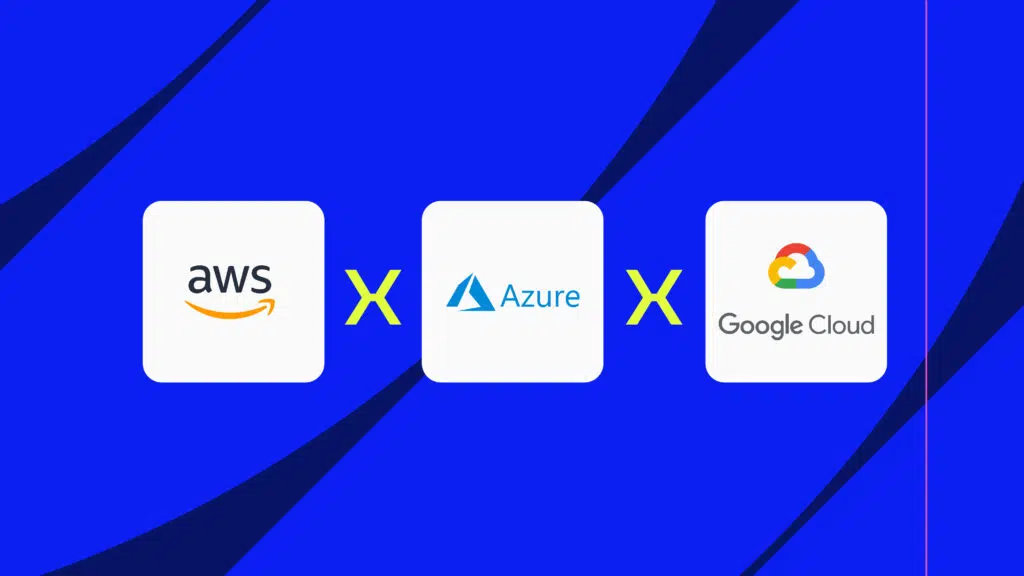In a universe where more and more companies are adopting cloud computing , many still have a local server . Is this your case?
Well, we know that the reasons for this decision are varied and range from lack of confidence in the new technology to the lack of structuring of planning focused on digital transformation.
However, a question arises: is it still worth having one of these? In this article, we decided to list some reasons to rethink the on-premise method. Continue reading and find out more!
6 reasons to understand if it is worth keeping a local server
1- The cost of the internal backup server itself
The first point highlighted in this article is the cost . In order for a company's data to be stored securely and efficiently, a good quality server needs to be purchased.
With that, we already entered the first major expense that the company should have when adopting a local server. After all, it will need the machinery to start its operation and, without it, it is impossible to store data.
But, don't think that the acquisition cost is the only one that should be placed on the tip of the pencil. Also to be considered are the resources spent on installation and the time this can end up consuming.
In addition, expenses such as maintenance, prevention and optimization of the tool are , which must always be working. After all, a fall can result in lost time and damage to the organization.
2- Local server and electricity costs
In addition to the expenses listed above, an on-premise system needs to be connected all the time and needs support to make it happen more safely.
In this case, a cooling system must be connected to the server to ensure that it does not reach high temperatures and end up being damaged in the process. Since, if this occurs, crucial data for the operation of the company may be lost.
So, if you have a company and still use a local server, put the following questions on the table: how much do you spend with an air conditioner running 24 hours a day? How much would that be in a year? And in five years?
In a different context, where the local server is replaced by a server in the cloud , it becomes possible, for example, to reallocate these expenses with electricity in other more strategic areas of the company , investing directly in its growth.
3- Maintenance
In the same premise of the last topic, we have to place the maintenance of the local server as one of the points to be considered. It usually affects companies in the medium and long term, but it is an unavoidable expense.
When you buy a server, it arrives sparkling from the factory, but over time it loses its “new car smell” and needs to be repaired. Be it in the processed data, in the installed software All these parts will require good maintenance, which should be periodic.
In this scenario, server slowdowns are just the beginning of the end, which can end up with data loss that could make the difference between the success and failure of your business.
When compared to cloud computing , maintenance ends up being much lower. That's because the entire hardware part can be left out , as well as a good part of the software .
An IT team still needs to be maintained, but it can focus on more important things.
4- Physical space
For this topic, we are going to work with the following situation: your company decided to work with a local server and for that purpose allocated a perfect physical space for the equipment to fit without major problems.
The entire installation was successfully completed and is perfectly set. The costs were high, but you know the data is being handled well by your valued IT team.
This scenario sounds like a “wonder”, correct?
But, let's say that after some time your organization starts to do an absurd data processing and with that the local server is no longer able to flow .
It starts to slow down and give some glitches. At that time you need to expand it as soon as possible.
The issue is that the physical space selected before is no longer useful and it needs to go through a work, which will generate costs and more time consumed. Meanwhile, your server is stopped or at risk of being affected by the works.
This imaginary situation can occur, especially if there is no proper planning. The physical space of a local server is always a headache, as it generates costs and can be an impediment for your company to continue growing.
Even in this case, it goes without saying that if the cloud server had been adopted, this whole problem would have been solved. Even in the need to expand the database, this process would be simpler , needing only to increase the package with the contracted service, for example.
5- Local server and software licenses
And if the expenses described so far weren't enough, more resources still need to be directed towards software licenses. Operating System, firewall program and other applications must be purchased for the local server to work well.
Updates also need to be purchased and, in some cases, companies do not have a fixed fee for a software license, but a periodic payment for maintaining it.
How much is actually spent on this? Well, the value will vary according to the quality and quantity of the software . The company's IT team can also request specific applications to work on, always giving preference to those in which they have greater know-how.
And it's worth remembering that these licenses need to be 100% up to date, both for the security of your server and to remain within the law, adapting to the LGPD, for example.
6- Depreciation of the internal backup server
Remember the scenario mentioned in the topic of physical space? The one where the company found itself in need of expanding its local server? Well, imagine that, in that situation, something else needed to be done: the replacement of all the equipment.
In order not to get rid of the old server and still get some value, selling it would be the most plausible. The problem is that electronic devices in the IT area have a depreciation that is considered high.
It is estimated that such a device loses 20% of its value each year, on average.
This is in the best expectations, since in the world of technology things move very fast and tools that were useful two years ago may not be efficient now.
What changes with the migration to the cloud?
As we have seen, taking into account all these points, it is possible to notice that a local server represents a lot of costs and, on the other hand, reflects few advantages for the business , when compared with more advanced options, such as servers in the cloud.
Cloud servers end up being the best option for several reasons. Cost is one of the main ones, since a large part of what is spent on on-premise does not need to be invested in the cloud server.
Physical space, server equipment, maintenance, software license, energy costs. All this is up to the service provider, which, by working directly with the servers, needs to invest in it and they are not expenses that can be called “extra”. It is part of the core operation of these companies.
In this case, the final cost in the cloud is only for a good internet service and a good company that can provide an efficient cloud service. This is just thinking about the financial issue.
In addition, time can also be saved and resources that would be spent end up being reallocated to other crucial areas of your company. So, put all these expenses on the pencil tip and you'll see the difference.
As we can see, cloud services end up having a large advantage against on-premise when it comes to cost. This is a choice that can greatly help the financial side of your company, but it can also give you many other advantages!
Did you like this article's content on whether it's worth keeping a local server? Download the Infographic “ Choosing the type of hosting for your system ”! And learn more about optimizing the process of deploying your server in the cloud.




